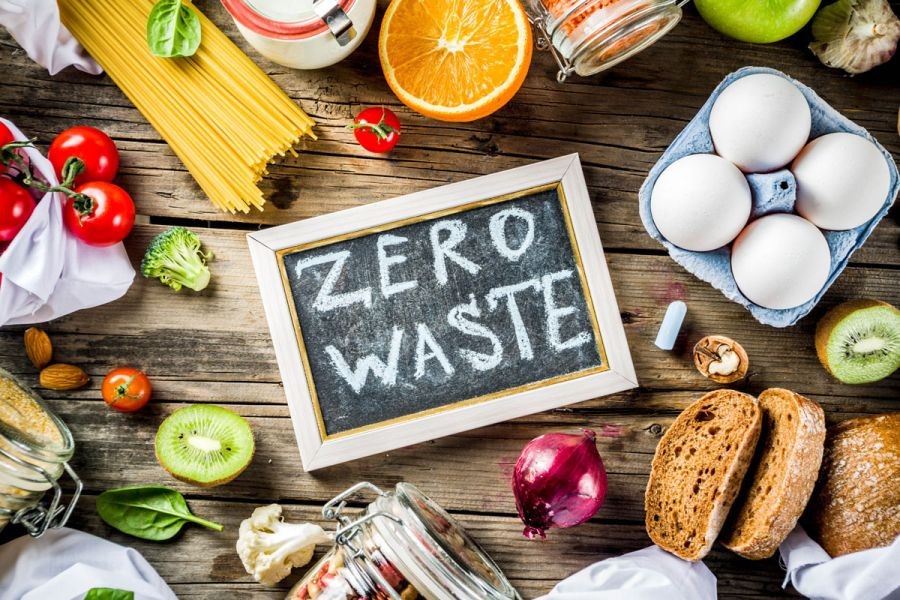Imagine walking into your local New Zealand supermarket, list in hand, only to realize you're contributing to one of the nation's growing concerns: grocery waste. According to a report by WasteMINZ, New Zealanders throw away approximately 157,389 tonnes of food annually, costing the average household over NZD 563 per year. Not only is this a financial burden, but it also represents a significant environmental issue, given the energy, water, and resources expended to produce this wasted food.
In a country known for its stunning landscapes and commitment to sustainability, reducing grocery waste is more than just a personal choice—it's an imperative. As a healthcare consultant, understanding how to effectively reduce grocery waste not only benefits the environment but also contributes to better public health outcomes by encouraging mindful consumption. Here's how New Zealanders can tackle this issue with a comprehensive, data-backed approach.
1. Plan Meals with Precision
The cornerstone of reducing waste is meticulous planning. Rather than making impulse purchases, create a detailed meal plan for the week. This ensures you buy only what you need, reducing the likelihood of food spoilage. According to a study by the University of Otago, households that plan meals are 20% more likely to consume all purchased groceries, thereby minimizing waste.
Case Study: Wellington Family's Grocery Transformation
A family in Wellington managed to cut their grocery waste by 35% in just two months by implementing meal planning. They used online tools like the Eat Well NZ planner to organize meals based on what was already in their pantry, reducing unnecessary purchases and saving over NZD 150 monthly.
2. Embrace Local and Seasonal Produce
Buying local and seasonal produce not only supports New Zealand's economy but also reduces food miles, lowering environmental impact. Seasonal produce is fresher and lasts longer, reducing the chance of it going to waste. Statistics from Stats NZ reveal that local produce travels an average of 50% less distance than imported goods, contributing to its freshness and shelf life.
3. Utilize Technology for Smart Shopping
Apps like Foodprint and Too Good To Go are revolutionizing how we approach grocery shopping by connecting consumers with surplus food from local stores and restaurants at reduced prices. These platforms have successfully diverted tonnes of food from landfills, a concept New Zealand businesses are increasingly adopting. Adoption of such technology could lead to a 30% reduction in food waste across Kiwi households, according to a report by MBIE.
4. Store Food Correctly
Proper storage extends the life of groceries. Understanding the storage needs of different food types—like keeping potatoes in a cool, dark place, or storing herbs in water—can significantly reduce spoilage. The New Zealand Food Safety Authority suggests that proper storage can extend the shelf life of produce by up to 40%, reducing waste and saving consumers money.
5. Adopt a 'First In, First Out' (FIFO) Strategy
Organize your pantry and fridge so that older items are at the front, and newer items are placed behind. This method ensures that older products are used first, reducing the chance of food expiring before use. This simple strategy can decrease waste by 25%, according to a survey by the New Zealand Retailers Association.
6. Compost Food Scraps
Composting is a practical solution for food scraps, turning waste into nutrient-rich soil. Many New Zealand councils provide composting bins and educational resources to encourage residents to start composting at home. A study from the University of Auckland found that households that compost reduce landfill waste by up to 50%.
7. Educate and Involve the Community
Community involvement is vital. Initiatives like community gardens and local workshops on reducing food waste can foster a collective effort. In Christchurch, the Waste Not initiative has educated over 5,000 residents on sustainable practices, reducing community food waste by 15% in the last year alone.
8. Support Sustainable Brands
Choosing brands that prioritize sustainability and have transparent supply chains can drive change across the industry. Brands like EcoStore and All Good Organics lead by example, offering products that are both environmentally friendly and ethically sourced. Supporting such companies encourages broader industry shifts towards sustainability.
9. Reevaluate Portion Sizes
Over-serving leads to leftovers, which are often wasted. Being mindful of portion sizes and using leftovers creatively can significantly reduce waste. The New Zealand Heart Foundation provides resources on portion control, which not only helps in waste reduction but also promotes healthier eating habits.
10. Advocate for Policy Change
Support policies that encourage food waste reduction, such as incentives for businesses that donate surplus food, or regulations that require food waste reporting. Engaging in dialogue with local representatives can push for stronger legislative measures, aligning with New Zealand’s commitment to sustainability.
Common Myths & Mistakes in Reducing Grocery Waste
- Myth: "Composting is too complicated for urban living." Reality: Urban composting solutions, such as worm farms, are simple and effective, even in small spaces.
- Myth: "It's cheaper to buy in bulk." Reality: Bulk buying often leads to over-purchasing and waste; buying only what you need is more cost-effective.
- Myth: "Expiration dates are definitive." Reality: Many foods are safe to consume past their expiration date if stored properly; use your senses to judge freshness.
Future Trends & Predictions
By 2030, it's predicted that New Zealand could reduce its food waste by 50% through the integration of AI in supply chain management and consumer education initiatives. As the country continues to advance in sustainable practices, the collaboration between technology and consumer behavior will be pivotal in achieving waste reduction goals.
Conclusion
Reducing grocery waste is a multifaceted challenge that requires collective action from individuals, businesses, and policymakers. By implementing these strategies, New Zealanders can significantly minimize their environmental footprint while fostering a culture of sustainability. What steps will you take to reduce your grocery waste? Share your thoughts and join the conversation on sustainable living!
People Also Ask
- How can NZ households reduce food waste? By meal planning, using technology to track expiry dates, and composting food scraps, households can significantly cut waste.
- What are the main causes of food waste in New Zealand? Over-purchasing, improper storage, and lack of meal planning are key contributors to food waste.
- What are the benefits of reducing grocery waste? It leads to cost savings, environmental benefits, and promotes healthier eating habits.
Related Search Queries
- How to reduce food waste at home NZ
- Best apps for reducing food waste
- Sustainable grocery shopping tips
- Composting in urban areas NZ
- Benefits of meal planning in New Zealand
- Top sustainable brands in New Zealand
- Food waste reduction policies NZ
- Seasonal produce calendar New Zealand
- Local food markets in New Zealand
- Environmental impact of food waste
































ValentinaT
8 months ago